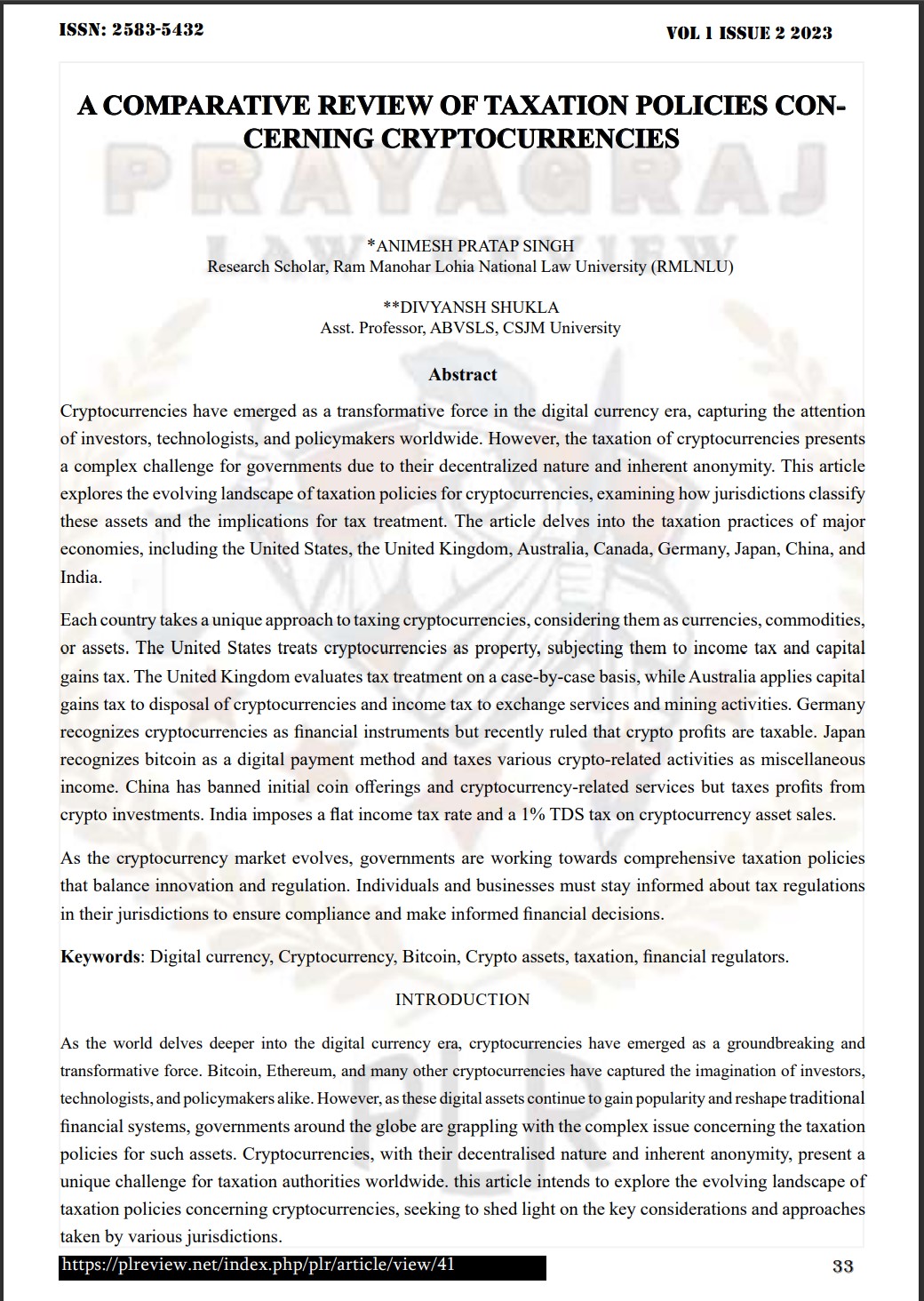A COMPARATIVE REVIEW OF TAXATION POLICIES REGARDING CRYPTOCURRENCIES
DOI:
https://doi.org/10.61120/plr.2023.v1i245-52Keywords:
Taxation, CryptocurrenciesAbstract
As the world delves deeper into the era of digital currencies, cryptocurrencies have truly emerged as a groundbreaking and transformative force. Bitcoin, Ethereum, and a multitude of other cryptocurrencies have captured the imagination of investors, technologists, and policymakers alike. However, as these digital assets continue to gain popularity and reshape traditional financial systems, governments around the globe are grappling with the complex issue of taxation. Cryptocurrencies, with their decentralized nature and inherent anonymity, present a unique challenge for taxation authorities worldwide. In this article, we will explore the evolving landscape of taxation policies concerning cryptocurrencies, seeking to shed light on the key considerations and approaches taken by various jurisdictions.
First and foremost, we will delve into the fundamental question of how cryptocurrencies should be classified for tax purposes. Should they be treated as currencies, commodities, or securities? The answer to this question has significant implications for the tax treatment of transactions involving cryptocurrencies, including income tax, capital gains tax, and sales tax. Additionally, we will examine the challenges faced by tax authorities in monitoring and enforcing compliance in the realm of cryptocurrencies. The decentralized nature of blockchain technology and the pseudo-anonymity of crypto transactions create hurdles in tracking and taxing cryptocurrency-related activities effectively. Furthermore, we will explore the diverse strategies adopted by governments worldwide to address these challenges. From outright bans to regulatory frameworks, each country has taken its own unique approach in formulating tax policies specific to cryptocurrencies. We will analyze some prominent examples and assess their effectiveness in striking a balance between fostering innovation and ensuring tax compliance.

Downloads
Published
How to Cite
Issue
Section
License
Copyright (c) 2023 Prayagraj Law Review

This work is licensed under a Creative Commons Attribution-NonCommercial-ShareAlike 4.0 International License.
All works published in PLR are licensed under Creative Commons Attribution- Non-commercial- ShareAlike 4.0 License.
Under these terms,
You are free to:
- Share — copy and redistribute the material in any medium or format
- Adapt — remix, transform, and build upon the material
- The licensor cannot revoke these freedoms as long as you follow the license terms.
Under the following terms:
-
Attribution — You must give appropriate credit, provide a link to the license, and indicate if changes were made. You may do so in any reasonable manner, but not in any way that suggests the licensor endorses you or your use.
-
NonCommercial — You may not use the material for commercial purposes.
-
ShareAlike — If you remix, transform, or build upon the material, you must distribute your contributions under the same license as the original.
- No additional restrictions — You may not apply legal terms or technological measures that legally restrict others from doing anything the license permits.











